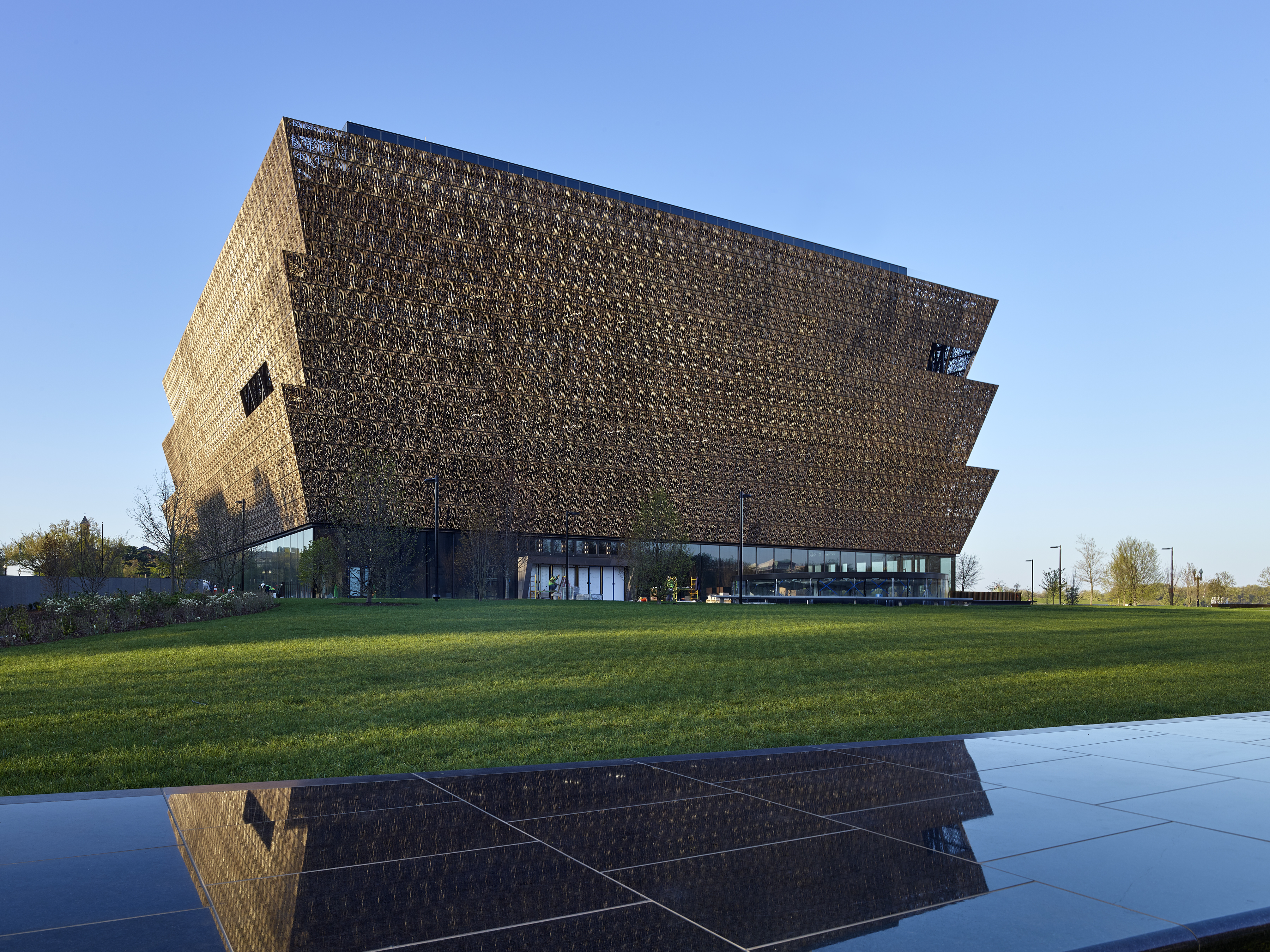Although this study revealed some important insights regarding African Americans' food intake and physical activity, there are some limitations that should be considered. First, the convenience sample consisted of African American students or alumni from Columbia University, or community members predominantly living in the Columbia University area. The sample is, therefore, not representative of the entire African American population. Living in an urban area as opposed to in the rural community can affect African Americans health behaviors differently.
For example, these two groups may differ substantially in their access to healthy food and recreational spaces, as well as socio-economic status affecting their health behavior choices. Second, the participants in the study consisted of predominantly educated individuals, and mostly women. Interviews with individuals representing different educational levels and with more men as well might have yielded different conclusions given that both of these characteristics can affect food intake and physical activity. Third, the way participants perceive their African American culture and their mainstream culture may be tied to their level of education and their socioeconomic status, which were relatively high among the research participants in this study. Individuals with higher socioeconomic status might be more connected to their mainstream culture and therefore more willing and able to engage in healthy lifestyle practices common in their mainstream culture.
Unfortunately, we did not collect comprehensive demographic and socioeconomic data, which limits our ability to fully understand the sample characteristics and how they relate to participants' responses. Therefore, future studies should clarify how socioeconomic status affects African Americans' perceptions of food intake and physical activity common in their ethnic and mainstream cultures. Fourth, most questions designed for this study explored participants' perceptions of other African Americans' health behaviors in the context of their ethnic and mainstream cultures; many fewer questions addressed participants' perceptions of their own behaviors. Because different processes can be involved in perceiving one's own versus others health behaviors, it would be important for the future research to distinguish these two types of views—of one's own beliefs and behaviors and those of others. Finally, in terms of our conceptualization of the influence of culture on individuals' food intake and physical activity, the current study has focused on only two dimensions of this influence (i.e., barriers and facilitators of healthy lifestyle). The rationale for this choice of dimensions is that it reflects the study's research questions; it has not been examined before in the context of individuals' ethnic and mainstream cultures; and it has implications for health promotions programs.
However, there are many other ways in which the influence of African Americans' culture on their food intake and physical activity could be conceptualized, and future research would benefit from exploring those dimensions. Despite these limitations, the present research contributes to broadening the understanding of how African Americans make sense of their own experiences in relation to food intake and physical activity. This bibliography on African American deathways examines the role of death, dying, and disposal from a variety of different perspectives.
Studies focusing on the intersection between death and history survey a wide range of materials, ranging from general histories that contextualize the importance of death culture to more specific studies of prominent burial grounds and cemeteries. Scholars focusing on cemeteries and material culture tend to highlight the importance of burial customs in African American remembrance and mourning, while also examining some of the intellectual divides that archaeological excavations of these cemeteries have created. Additionally, many burial customs and traditions retained markers of identity tying them to West African traditions and pan-African identity, in general. Cemeteries function as signifiers of belonging and exclusivity, with many cemeteries in North America either segregated or unmarked.
Cremation, on the other hand, remains a less popular form of disposal in a culture with a deep respect for embodied funeral traditions, even though it is a far more affordable option than burial. The funeral home thus became an important center for commerce, building equity, funding education, creating political action, and providing infrastructural support, causing the funeral home business to prosper. Recent research on the dying experience among African Americans reveals disparities between whites and communities of color, with unequal access to medical care and a history of gross abuse and experimentation by medical professionals. Those studies focusing on mourning and culture tend to address larger cultural frameworks of death from a qualitative perspective, while gender-critical analyses of African American deathways examine the role of women and LGBT folk in the funeral business.
Unfortunately, like many businesses, women's roles were diminished as the industry professionalized and men became the primary faces of the business, while death studies in general remained heteronormative in its focus. Finally, the political dimension of death represents a significant area of research within African American death studies. These works examine the politics of mourning and the ways in which death and mourning create agency for the African American community. Death, funerals, and a politics of mourning were all essential to political movements in the United States, and evidenced through collective responses found in both the anti-lynching movement and the civil rights movement. More recently, the Black Lives Matter movement has highlighted the continued killing and spectacle of black bodies, and can be viewed as a powerful contemporary resistance against the ongoing oppression of people of color in the United States. Because African Americans belong to both their ethnic and mainstream cultures, they are exposed to two sets of cultural norms surrounding food intake and physical activity.
These multiple cultural norms can potentially have positive or negative influences on individuals' health behaviors. The negative influence is related to the idea that norms of different cultures can be in conflict with each other. Given that cultural norms affect health behaviors, bicultural groups, such African Americans, may be simultaneously exposed to discrepant cultural lifestyle-related norms, and these norms may adversely affect their food intake and physical activity. A few previous qualitative studies explored the relationship between cultural norm discrepancy and health behaviors . For example, in one of these qualitative studies, participants reported feeling conflicted between culturally informed eating habits, body size image, and mainstream culture dietary guidelines . For example, they may confuse individuals with regard to what constitutes healthy lifestyle and make it more difficult for them to actually follow any of the norms promoting healthy behaviors that each culture has to offer.
Furthermore, the confusion caused by conflicting norms might itself trigger inaction. The exact processes involved in cultural norm conflict and health behaviors, however, are yet to be identified. The results of the present study may have some implications for planning and designing health promotion programs for African Americans. First, the fact that participants show favorable attitudes toward picking and choosing and toward healthy makeovers suggests that they are open to taking advantage of healthy behaviors promoted in both their ethnic and mainstream cultures. Shifting from a deficit model to a strength-based model empowers ethnic minority groups and validates their experiences without unnecessarily pathologizing their health practices . Of course, research is needed to determine the extent to which incorporating practices from both cultures is an effective means of improving the health and wellbeing of African Americans.
Given that African Americans belong simultaneously to their ethnic and their mainstream cultures, the current study also examined individuals' reactions to the idea of picking and choosing, that is incorporating the healthy elements of both cultures into their lives. Most participants reported engaging in picking and choosing healthy behaviors related to food intake and physical activity from both cultures to which they belong. They also perceived picking and choosing these behaviors as a way to optimize their health. The potential benefits of incorporating normative behaviors from one's ethnic and mainstream cultures is consistent with the concept of Bicultural Identity Integration , which is associated with greater wellbeing, creativity, problem solving, and coping strategies . Belonging to more than one culture exposes individuals to a broader range of norms, values, and beliefs on the basis of which they can govern their behaviors , including their health behaviors.
The idea that belonging to two different cultures can positively influence one's actions, such as health behaviors, is supported by research on Bicultural Identity Integration . According to this construct, exposure to two cultures provides people with an opportunity to learn and benefit from their rich cultural environment . For instance, bicultural identity integration was found to increase individuals' creativity and their wellbeing . In the context of health, exposure to two cultures affords individuals two sources of information about health trends and practices common in each culture, and these different sources of influence can shape individuals' own health behaviors. For example, one can be exposed to behaviors common in mainstream American culture such as the trend toward healthy eating, and behaviors common in ethnic African American culture such as consuming foods at home with one's family. As a result, individuals can have a broader range of healthy behaviors to choose from while pursuing their healthy lifestyle.
These potential benefits of being exposed to two cultures highlights the value in examining the simultaneous influence of African Americans' ethnic and mainstream culture on their health behaviors. There are a few gaps in the previous research on culture and health that the current study attempted to address. First, previous studies have focused on the relationship between culture and African Americans' health behaviors only in the context of African Americans' ethnic culture . These studies did not take into account the simultaneous influence of individuals' mainstream and ethnic cultures on their health practices. Given that African Americans are simultaneously exposed to both their ethnic and mainstream American cultures, the present study examined the role of both cultures in individuals' food intake and physical activity.
Overall, the findings of the present study demonstrate the importance of both ethnic and mainstream cultures in shaping African Americans' health behaviors. These influences need to be understood in the context of other psycho-socio-environmental factors that affect individuals' health behaviors. Healthy food intake and physical activity also need to be considered and understood in the context of one's larger social and physical environment.
These findings have implications for health promotion programs directed at African Americans. This study used an in-depth semi-structured interview format to examine the influence of ethnic and mainstream cultures on African Americans' health behaviors. This approach was selected because qualitative research has been considered effective in exploring cross-cultural issues related to health, including food intake and physical activity . Semi-structured interviews allow participants reflect freely on their own experiences and observations in their own words rather than categorizing and quantifying of experiences of research participants on pre-established quantitative scales . The culture of a people is what marks them out distinctively from other human societies in the family of humanity. The full study of culture in all its vastness and dimensions belongs to the discipline known as anthropology, which studies human beings and takes time to examine their characteristics and their relationship to their environments.
Culture, as it is usually understood, entails a totality of traits and characters that are peculiar to a people to the extent that it marks them out from other peoples or societies. These peculiar traits go on to include the people's language, dressing, music, work, arts, religion, dancing and so on. Values here are to be understood as beliefs that are held about what is right and wrong and what is important in life.
Axiology as a branch of philosophy deals with values embracing both ethics and aesthetics. This is why philosophical appraisal of African culture and values is not only apt and timely, but also appropriate. Moreover, the centrality of the place of values in African culture as a heritage that is passed down from one generation to another, will be highlighted.
We shall try to illustrate that African culture and values can be appraised from many dimensions in addition to examining the method of change and the problem of adjustment in culture. Here we hope to show that while positive dimensions of our culture ought to be practised and passed on to succeeding generations, negative dimensions of our culture have to be dropped in order to promote a more progressive and dynamic society. There are also a variety of practical considerations that participants described as influencing their opportunities to engage in healthy behaviors from both cultures. Consistent with previous research, participants in the current study reported that affordability , access to healthy food , health knowledge and personal factors are important in determining African American's health behaviors. For example, the willingness to consume fruits and vegetables, which are heavily promoted within mainstream culture, depends on a proper access to these types of foods.
In contrast, and consistent with previous research , the experience of discrimination within one's mainstream culture was reported as one of the biggest health compromising factor. All these findings suggest that ethnic and mainstream cultural norms and behaviors around food intake and physical activity can be important in shaping African Americans' health behaviors. Second, there are relatively few studies directly examining the interplay between culture and other psycho-socio-environmental factors that collectively affect individuals' health practices . Adopting a qualitative methodological approach can help develop a richer understanding of the role of culture and other psychological, social, and environmental factors in African Americans' health behaviors .
This section emphasizes African American deathways from a historical viewpoint, from the precolonial period to the present day. Brown 2008, though focused primarily on Jamaica, offers a compelling necropolitics of death and the black body that equally applies to enslaved Africans in North America. Berry 2017 writes about the cadaver trade and ghost values of enslaved corpses in the early United States, and Castronovo 2001 studies necropolitics in the 19th century from a broader societal perspective, continuing the examination of cadavers and their agency. Warren 2014 also examines West African influences on antebellum burial practices, while arguing that blacks were transformed into dead objects even before they died. Turner 2013 is a rich documentary film tracing the history of African American deathways; it follows a New York City funeral director through his daily life, while reflecting on death customs. Finally, Mack and Blakey 2004 offers an important analysis of the African Burial Ground in New York City, arguing that the study of African American deathways continues to be fraught with issues over agency, identity, and belonging.
Black discontent over economic, employment, and housing discrimination reached frightening proportions in the summer of 1965, with rioting in the Watts section of Los Angeles. Nearly a decade of nonviolent resistance had failed to remedy the racial crisis in the United States; consequently, a more militant reformist element began to emerge. "Black Power" became the rallying cry of the middle and late 1960s, and more and more civil rights groups adopted all-black leadership. King's assassination in 1968 only compounded the nation's explosive racial situation. According to Franklin, King's murder symbolized for many blacks "the rejection by white America of their vigorous but peaceful pursuit of equality." The Black Revolution had finally crystallized, and with it came a grave sense of loss and despair in the black community.
The new generation of black leaders seemed to champion independence and separatism for blacks rather than integration into white American society. With respect to their ethnic culture, and consistent with previous research, participants often mentioned resilience , reliance on spirituality , dance and music and social support as important health-enhancing qualities endorsed in their African American culture. In contrast, traditional "soul food" cuisine was reported as one of the most important cultural factors that compromises healthy food intake within African American communities .
This finding may explain why preparing healthy makeovers of some of the less healthy traditional African American dishes appealed to participants in the present study. Third, most recent studies have focused exclusively on unhealthy norms related to food intake and physical activity, omitting the healthy aspects of individuals' cultures. This approach represents a "deficit model," which, according to previous research, can be counterproductive in health promotion programs .
Of course, the influence of culture on individuals' health behaviors cannot be separated from their immediate social context and broader physical environment . For example, research has shown that, because African Americans value collectivism and togetherness, family and friends play an important role in shaping their health behaviors . Furthermore, the health behaviors of African Americans are often the result of health and economic disparities among this cultural group. Thus, the health behaviors of African Americans need to be examined in the context of personal factors, individuals' immediate social environment, and their physical environment . Most research in the area of culture and health has focused exclusively on the influence of individuals' ethnic culture on their health behaviors . Here we consider ethnic culture to reflect a group of individuals of the same ethnic background sharing similar values, norms, and engaging in similar practices or behaviors.
For instance, Airhihenbuwa et al. explored African Americans' perceptions about positive and negative cultural food practices and the contexts in which they occur. Their participants reported that, not only does ethnic culture affect individuals' food choices, but culture also influences how the food is prepared and the context in which it is consumed by creating social norms surrounding these practices. How might have enslaved Africans used these words, and how did so many languages get mixed together?
Slavery, which separated families and communities and mixed Africans from many areas, broke down the ability of individual Africans to use their own languages. Instead, newly arrived Africans learned to communicate in a "pidgin," a simplified system of communication that takes words from many languages. Over time, such pidgins became richer, fuller, and more stable means for communication. Linguists call languages that have developed from such multilingual contact "creoles." The creole languages that developed from slavery have been an important linguistic resource across the Americas.
African American culture began to form as soon as Africans came to the United States. The "African" qualities of the managed land-and-waterscapes, religious praise houses, and creole songs and stories of the Gullah people of the Sea Islands are a testimony to the wealth of such cultural development. In other areas, where slaves were scattered among large European American communities, African American cultures reworked European cultural legacies into less recognizably "African" but equally creative motifs. It seems to me now that the popularity of family reunions over the past three or four decades can be attributed to a number of cultural shifts.
Victories were won through the civil rights movement, the world became more accessible to African Americans through significant economic growth and legislative advancements. Technological innovations facilitated far-reaching communication, making it no longer necessary to remain in the communities of birth surrounded by parents and extended families. As African Americans gained entrée to more places in society through education, jobs, and the removal of housing restrictions, their world grew larger and the centrality of the extended family shifted.
As early as the 1620s and 1630s, European missionaries in the United States began efforts to convert Africans to Christianity and provide them with a basic education. Other inroads in the black educational process were made by America's early white colonists. The Pennsylvania Quakers were among the most vocal advocates of social reform and justice for blacks in the first century of the nation's history. Staunch opponents of the oppressive institution of slavery, the Quakers began organizing educational meetings for people of African heritage in the early 1700s; in 1774, they launched a school for blacks in Philadelphia.
By the mid-1800s, the city had become a center for black learning, with public, industrial, charity, and private schools providing an education for more than 2,000 African American students. Finally, the effectiveness of tailoring dietary messages may depend on individuals' connection to their cultures as well as on differences within the culture . As Kreuter et al. noted, African American culture does not comprise of a monolithic cultural milieu, and people's relationship to their culture can vary . Therefore, health promotion programs for African Americans need to consider these variations and individuals' connections to their culture in the design and delivery of effective health promotion programs.
For instance, in order to optimize the effectiveness of such programs, the focus and the content of health intervention can be tailored to individuals' level of connection to their ethnic and mainstream cultures. Moreover, these programs should also target personal factors such as motivation for leading healthy lifestyle because these factors are potentially important in triggering healthy behaviors. Literary scholar Raymond Williams explains, "Culture is ordinary." Culture, Williams continues, is "a whole way of life."2 This remarkably simple definition, through its breadth, provides a point of departure in our search for vestiges of the past. "Cultural history" has weaned historians from their dependence on the perspectives of the archive to expand what might count as historical evidence. These shreds and shards extend what can be told about the past and enlarge the circle of historical subjects who we recognize as integral in making the past.





















No comments:
Post a Comment
Note: Only a member of this blog may post a comment.